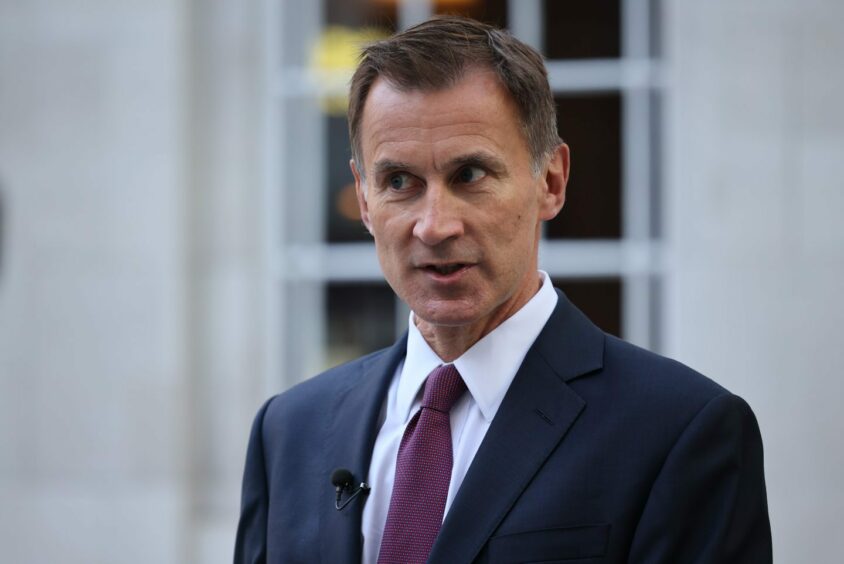
Chancellor Jeremy Hunt is due to hold a meeting on Friday on the windfall tax, Energy Voice understands, with oil and gas executives seeking a price floor to the levy.
Multiple sources told EV that the Chancellor will be in Aberdeen for the discussion – though a last-minute change, thought to be due to the weather, now means its expected in Edinburgh.
Representatives of more than a dozen top producers, including Harbour Energy, BP, Shell, TotalEnergies and Ithaca Energy, will be in attendance – though expected to be virtually for some – alongside the North Sea Transition Authority (NSTA) regulator and Offshore Energies UK (OEUK).
Oil and gas firms’ key ask will be the imposition of a price floor so that the windfall tax can be phased out if prices reach that threshold, similar to a scheme currently in place for power producers.
There is currently no means of the levy being phased out if oil and gas prices drop between now and the sunset clause of March 2028, which has caused unrest for energy firms in a historically cyclical sector.
The main difference between industry and government positions is that the Treasury believes there will be a sustained period of high oil and, particularly, gas prices in light of the Russian invasion of Ukraine, while industry believes these are liable to fall.
The Treasury is also said to be concerned about an announcement from TotalEnergies last week that it will cut £100m of spending in 2023 – 25% of its planned investment for the year – in the UK due to the levy.
Sources said figuring out a price floor mechanism is a “critical issue” of the meeting.
It’s understood the chances of a floor being agreed in the short-term are “slim”, but certain companies’ capacities for reserves-based lending (RBL) – a type of loan or finance against firms’ oil and gas portfolios – have dropped significantly due to the levy, first introduced in May.
Price floor
Under a previous version of the levy, while Rishi Sunak was Chancellor, it the government said it would be phased out if prices reached “historically more normal levels”.
That element was removed when Jeremy Hunt updated the tax – known as the Energy Profits Levy (EPL) – last month.
It’s understood that companies are all in agreement that there should be a means of phasing out the tax, but they’re not all in concensus on the mechanism.
Rather than a bottom-out price, for example, others prefer a gradual phased-out approach – some producers are keeping an “open mind” on the strategy taken.
The issue is further complicated by issues like oil and gas price hedging and forward contracts, which will impact different operators in different ways.
The Treasury has been contacted for comment.
Last month OEUK said the windfall tax increase put £200 billion of energy investments, including low-carbon investment, at risk.
On the meeting, OEUK said its key point is that windfall taxes should only apply to windfall profits – so if prices and profits decline the tax should be scrapped.
CEO Deirdre Michie said: “This is a potential slow disaster for the UK. If investment falls now, then in a few years time our gas and oil production will plummet and we will become ever more reliant on imports.
“And if we produce less oil and gas then we will also be producing less jobs and, ironically, far less taxes.”
Recommended for you

